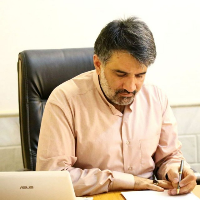The Analysis Background of Babi at and Bahaism Method and Content in Ismaili Teachings
The leaders of Babiat and Bahaism, by claiming they are uneducated and by using the slogan of the correspondence of religion with the necessity of time, have talked about the novelty of their words and claims, the indulgence of the claims, and the modernity of their teachings. However, their speech and deeds were no way new, rather their claims and lifestyle were very much like other deviant and spiritual flaws, in particular similar to some of Ismaili Imams who claimed to be Imam Mahdi of the time.
The present paper, with a descriptive-analytic approach, tries to explain the similarities between the speech and deeds of the leaders of Babiat and Bahaism with those of some Ismaili Imams in the field of Imamate and Leadership by gathering library information, so that the effective role of teachings of Imams of this flaw on the sects of Babiat and Bahaism is revealed.
The results indicate not only are the claims of Babiat and Bahaism leaders not fresh and indulgent, but also according to the available evidences, their presented doctrine in the area of Imam and his functions is a replica of the teachings of Imams of some tattered Ismaili flaws.
Imamate , Mahdism , Ismailis , Babiat , Bahaism , Ghaem al Ghyamat , interpretation , organization
-
Criticism of the innovation of Babism and Bahaism based on the evidence of imitation of previous sects
MohammadAli Parhizgar
Mashreq-e Mouood, -
Criticism of the position of sleep in the approach to the contemporary claimants of Mahdaviat
Pajoheshha- e Mahdavi A Research Quarterly in Mahdaviyyat, -
Imamate of Zaydis in Ancient Iranian Zaydi Sources: A Partial Study of the Manuscripts of Kitab al-Ebana
Mohammad Ali Salehi *, Hadi Nasiri, Seyyed Ali Musawinejad
Journal of Shi'a Pajoohi, -
Study of the Relationship between the Content of the Poems regarding the Uprising of Zayd ibn e- Ali (A. S) and the Political Conditions of the Society in the first Islamic Centuries
Hossein Farajollah, Seyyed Ali Mousavinejad
Hostory of Islam,




